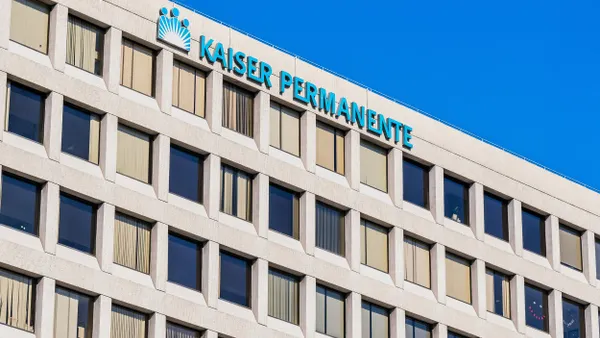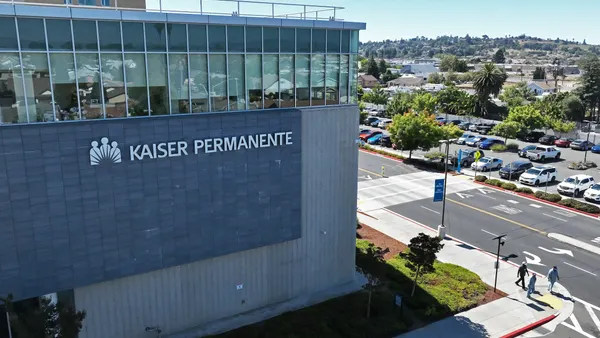Dive Brief:
- Tufts Medical Center CEO Michael Wagner testified before the Boston City Council this week, arguing the forthcoming merger between Beth Israel Deaconess Medical Center and Lahey Health will lead to higher costs while stifling competition, according to media reports.
- Wagner said the merged system would treat the lowest percentage of Medicaid patients among health systems in the region while attracting more affluent commercial patients, which would impact Medicaid reimbursement rates for competitors and widen a socioeconomic disparity.
- The Beth Israel-Lahey merger was approved by the state last July, but the deal is still awaiting review from the state's Health Policy Commission and the Massachusetts attorney general.
Dive Insight:
Although the promise of healthcare system mergers is often increased savings and improved patient outcomes, several findings have suggested that may not always be the case.
A recent JAMA report, for instance, found consolidations, often driven by finance, may risk patient safety. Another recent study, published by the University of California-Berkeley, claims highly-concentrated markets in California are resulting in considerably higher costs.
That report focused on Northern California, a market dominated by Sutter Health, which was recently sued by California's attorney general for anti-competitive practices and high costs. A 2008 Federal Trade Commission report found that healthcare prices increased 28.4% to 44.2% after Sutter's merger with Summit Medical Center.
The Beth Israel-Lahey proposal would be one of the largest mergers in Massachusetts history. The deal has been endorsed by state health officials, but is still under review by the FTC, a state watchdog agency and the Massachusetts attorney general.
Federal regulators have blocked some health system mergers in recent history, namely the NorthShore-Advocate proposal, which the FTC shot down in March 2017. The agency argued the merger would lead to higher costs and decreased quality of care.
David Spackman, Lahey's general counsel and senior vice president of government relations, refuted Wagner's claims that the merger would create a "two-tiered system." Spackman told the Boston City Council the combined system will drive costs down, positively impacting patients and boosting competition.












